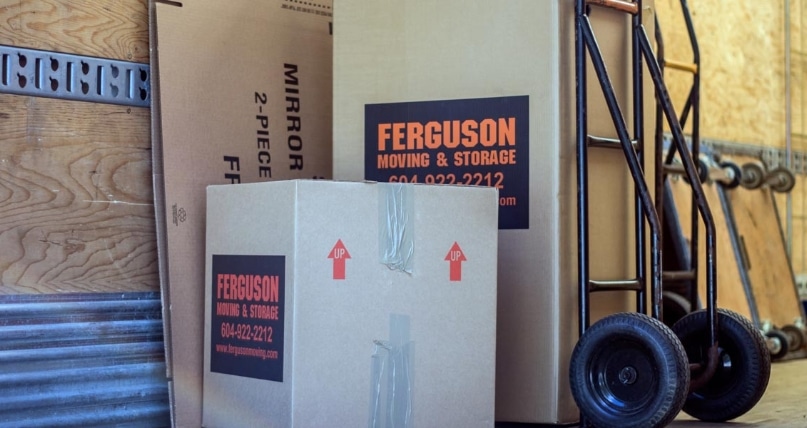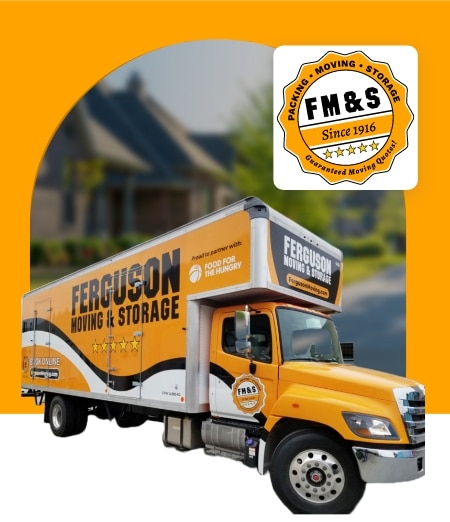- Furniture Movers, How To Move Videos, Moving Costs
Moving to an Urban Farm: Tips to Remember

Life within the conveniences of the city may seem like a dream. However, if you plan on moving to an urban farm in Metro Vancouver or elsewhere in B.C., there are some things to keep in mind before you make the plunge and leave your apartment life. This especially goes for moving into a home with a yard, or intending to lease city-zoned land for your new farming adventure. There may be other options available to you, which you’ll also want to consider. If you’re new to farming, and the idea of urban farming has tweaked your interest and motivated you to move, read up on some of what we’ve found.
Note: Moving to start an urban farm in the Vancouver area is not quite like moving to a hobby farm. We’ve written about that subject here, and encourage you to take a look there as well.
Urban farming on city properties is on the rise, but might not be totally legal yet
Last year in Vancouver, a move was made to begin the legalization of urban farms in the city. It wasn’t that there weren’t urban farms in Vancouver at the time. But more that that zoning and licensing wasn’t quite clear. Urban farms in Vancouver are already established, which you can see on the list here, by the Vancouver Urban Farming Society. Vancouver’s current urban agriculture policies can be read on its site here and here (they are, essentially, now allowed).
And in 2012, MacLean’s magazine was already writing about the popularity of urban agriculture, and the way of going about it for some.
But we often don’t associate city life with farming. In fact, it would be a sight to see if your neighbour’s front lawn and backyard were covered in crops. A garden, yes, maybe. But an entire lawn?
The idea seems wonderful to some, but we have to expect that neighbours can complain. There are designated agricultural areas set up by city governments. But now, those without big investment dollars are wanting to get into farming life. And running a huge, generational farm may be prohibitive to some. Are we turning back to middle-ages-style agrarian life?
While the City of Vancouver may have opened up the opportunity for its residents to start residential farms, surrounding areas in Metro Vancouver or the Fraser Valley may not be as clear. For example, below is a page from the City of Surrey’s website, which talks about agriculture and zoning, but doesn’t quite define laws for ‘urban farms’ or ‘residential farms’.
The same mystery is encountered when viewing the agricultural zoning documents on Delta, B.C.’s website:
https://delta.civicweb.net/filepro/documents/39433
Surely, there may be more deeply buried rules that were overlooked in our search. But apparently, someone who wants to move to start an urban farm would need to do some hunting to find out if their operation would be legal, or even just, in the ‘gray zone.’
Googling these subjects also doesn’t often bring many results.
The next place to turn is to learn the experiences of existing urban farmers. One urban farmer in Kelowna is Curtis Stone. His business, Green City Acres, leases residential yards for a sustainable farming operation. His argument for urban farming, stated on his website below, is that there are millions of acres of lawn in North America, which are unproductive by growing mere grass. They can be otherwise turned into economic opportunities.
He was once visited by a bylaw enforcer, and explains his experience in this video:
https://theurbanfarmer.co/a-visit-from-the-by-law-enforcer/
By that video above, it seems that neighbours can complain, but the enforcement of ‘gray zone’ laws around agriculture is iffy. And that’s just one person’s experience in one city. So it goes without saying that it can be a toss, when it comes time for your local officers to decide if what you’re doing is ok.
In short, urban agriculture is starting a new booming industry, but the governments may not yet be up to speed on the laws that may be needed to regulate it. For example, would you want goats raised in your neighbour’s backyard? Vancouver allows chicken pens in backyards, but not roosters, which can disturb residents. So things like this will likely come up in your quest to start an urban farm. Before you move, remember that you may need to be adaptable. You might also need to be available to lobby for your rights with governments, if need be.
Consider other options before moving to start an urban farm
If you want to start an urban farm, and are willing to move to do it, there may be other options, or even interim solutions for you.
Move to land in the agricultural land reserve that is close to the city
There are some pre-zoned spots near cities, and not necessarily in cities, where you could buy or lease a farm. If you read about this Burnaby farmer’s story, you’ll see that space was available in Burnaby under the agricultural land reserve.
Farms are also available for leasing if a current farm owner can’t upkeep the land, or for other reasons. These can be found at the following site:
https://farmablenow.ca/land/land-leasing/
Some may be nearer to cities than you’d imagine.
Lease your lot to an urban farmer and enjoy the vegetation
Some urban farmers, like Curtis Stone, look for yards they can farm. If you moved to start an urban farm, and feel the task is too daunting, or if you just want exposure to urban farming, you can consider leasing your front and back yard to a local farmer.
Now, we should mention that you might be exposed to the same legal vulnerabilities mentioned above!
See if you’re eligible for government help or subsidies to move to a farm
The Government of Canada, and perhaps other governing bodies, may have incentives to get farmers (especially young ones) involved in the industry. Whether or not this turns out to be for urban farming, you should learn more about what is available, in case it becomes an option for your farming dreams:
https://www.agr.gc.ca/eng/programs-and-services/youth-in-agriculture/?id=1391690826829
Consider indoor vertical farming as another route
Urban farms are now seen not just as residential farms, but as vertical farms in building structures too. For example, one vertical farm tried to operate in a Downtown Vancouver parking lot (but failed).
If your city allows, you may be able to find a way to grow food indoors through aquaponics, or other methods. Some companies are going full force on this idea, which you can read about in this article by Vox news. Of course, this would require more investment, since you wouldn’t just be moving to a residence to start an urban farm, but you’d be looking at leasing commercial space.
Join a community farm
There are many community-based farms where neighbours can volunteer to start a bed and care for it.
There are also community supported agriculture (CSA) programs you could support to get local fresh vegetables. It’s not the same as owning your own farm, but it can be a gateway into the healthy lifestyle of farm table eating.
Start small with a personal garden and grow your operation from there
If you live on a lot currently, you could still start a small-scale garden. As you learn more about farming, you may start acquiring equipment to make your gardening or future farming life easier. This can be a slow way to get into the business, where you learn most of your mistakes and perform your trials in advance of going ‘all in.’
For example, you’ll learn about rainwater harvesting and composting, which you could start at your current home.
Learn about farming before moving an urban farm
If you are really a green thumb at farming, it would also be wise to take the time to get to know more about the industry. It can be a lot more than planting seeds in the ground.
For example, Kwantlen has a farm school. Or, you could take courses by someone like Curtis Stone (mentioned above).
Keep up to date with urban farming news
As you wait on your decision to start an urban farm, keep up to date with the developments in urban farming.
This search on City Farmer will tell you about the legalities of urban agriculture throughout North America, or even the world:
https://www.cityfarmer.info/?s=legal
Hey, who knows, you might use those cases to present to your local authorities, for policy change, if need be.
To conclude: moving to an urban farm in B.C. cities is not an impossibility (we think)
The trend for farming near cities seems to be growing. People are more aware of the environmental impact of farming in large scale fields. Plus, there is a market for local food. So it makes sense that farms can grow in cities (pun intended). It may be a matter of time before more local governments change bylaws to allow for urban farms – or at least to make those bylaws clearer.
For now, if you’re willing to try it, you might set an example for the cities to consider. But we strongly urge you to learn more about the matter, and consider it a business: get as much professional help as you can before beginning.
Not only that, wherever you move, your lot should be suitable for farming. Don’t run into a situation where you haven’t inspected the yard for crop viability!
See related on our blog:

Categories
Moving Tips

This is the heading
Lorem ipsum dolor sit amet, consectetur adipiscing elit. Ut elit tellus, luctus nec ullamcorper mattis, pulvinar dapibus leo.

This is the heading
Lorem ipsum dolor sit amet, consectetur adipiscing elit. Ut elit tellus, luctus nec ullamcorper mattis, pulvinar dapibus leo.
We make moves easy for you.
- Local Moving
- Long Distance Moving
- Seniors Moving
- Piano Moving
- Item Relocation
- Overnight and Long-term Storage
- Packing Supplies





